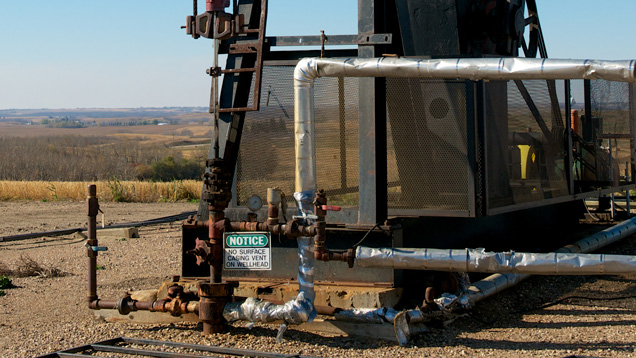Rumours of Grace: Morality, freedom and climate change
 CREDIT: NINAHENRY / ISTOCK / THINKSTOCK
CREDIT: NINAHENRY / ISTOCK / THINKSTOCKClimate change is something we have to deal with now; yet by putting an end to the oil sands it will cause a lag in our economy, but humanity will find a way to move forward with a clear conscience.
Is morality a dirty word? Sometimes we think so. To be moral seems to mean being a killjoy. It means to be cautious when it comes to gambling, sex, drug use, the consumption of alcohol and maybe some other things.
Moral people are often religious people. A sincere Catholic, Baptist, Muslim or Buddhist will be less likely to plunk down $500 during a night of gambling than their more fun-loving non-religious friend. The party life-style is not for them.
On the other hand having a strong sense of morality, a strong sense of right and wrong, can often save our necks from a truckload of negative consequences. Some of those negative consequences are accidents while DUI, teenage pregnancy, drug addiction, bankruptcy, cheating on our partners or our exams and police arrest are not.
Morality can be a vehicle for liberation. It can set us free. It provides an alternative to our darker sides. Would it be too much to say that morality is a gift from God? I don’t think so.
The understanding of morality as liberation applies nicely in the current discussion about climate change. Climate change is not only an economic issue; it is even more a moral issue, an issue about the right and wrong treatment of our neighbours who are being, or will be, impacted by global warming. Global warming will increasingly harm people. Your family members and my family members will be among them. And global warming will kill.
The current online issue of Maclean’s carries a report on David Suzuki. In it he compares the oil sands industry to slavery. He argues that the oil sands industry is as immoral as slavery was. What does Suzuki mean by this?
He means that arguments in favour of keeping slavery during the early 1800s boiled down to a simple one. Slavery had to be kept because it insured a supply of cheap labour for the mass production of cotton and sugar. Also, slaves in the colonies provided domestic labour. Sure, many of them were treated horribly and many died either on the way to their new “homes” or after they arrived. But it was necessary.
Similarly, arguments for the manufacture of oil products and their use are at the bottom about what is necessary for our economy. Without fuel for our cars, trucks, trains and planes, without the oil that powers just about every facet of the economy except for stamp collecting, jobs will evaporate. The economy will dry up, or so we are told.
But we got rid of slavery largely because Evangelical Christians in England and elsewhere, led or inspired by William Wilberforce at the beginning of the 19th century, pressed government for decades to abolish slavery. Some investors probably took a hit. But who cares? The important thing was to stop killing people. The economy adjusted pretty quickly and we moved on. And we could carry on with a clearer conscience.
According to Suzuki, we need to take the same approach to climate change. We are morally obliged to reduce and eradicate most of the production and consumption of fossil fuels.
The World Health Organization said, “Between 2030 and 2050, climate change is expected to cause approximately 250,000 additional deaths per year, from malnutrition, malaria, diarrhoea and heat stress.” And already deaths from severe weather events, which are linked to climate change, are on the rise.
In contrast it is doubtful that there will be any increase in fatalities from a determined effort to cease using oil as quickly as we can. The longer we resist the drive towards a green economy and the more we thoughtlessly consume the products and services provided by oil, the more dangerous our planet will become.
Suzuki expressed appreciation for the pope’s moral stand on climate change. Recently the pope released his encyclical, “On Care for our Common Home”. It is about the need to address our environmental crisis as a moral issue that cannot be ignored any longer. In the Maclean’s piece Suzuki said, “I’m with the pope, and as you know, I’m an atheist, but I’m willing to kiss the pope on his feet, on his hands or anywhere else he wants me to kiss him.”
I don’t know if the pope needs more kisses, but it is interesting to see these two moralists side by side on the issue of climate change.
Editorial opinions or comments expressed in this online edition of Interrobang newspaper reflect the views of the writer and are not those of the Interrobang or the Fanshawe Student Union. The Interrobang is published weekly by the Fanshawe Student Union at 1001 Fanshawe College Blvd., P.O. Box 7005, London, Ontario, N5Y 5R6 and distributed through the Fanshawe College community. Letters to the editor are welcome. All letters are subject to editing and should be emailed. All letters must be accompanied by contact information. Letters can also be submitted online by clicking here.














